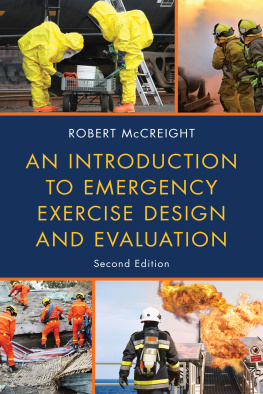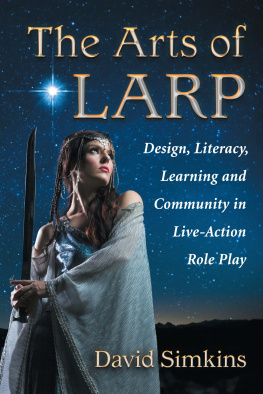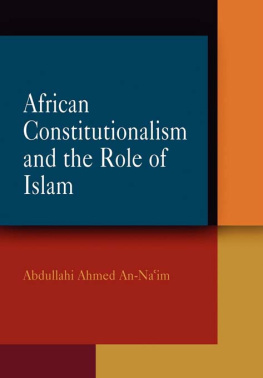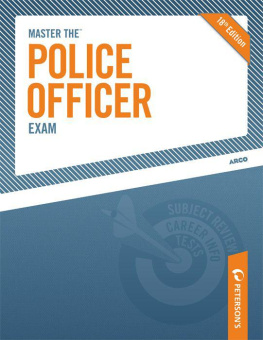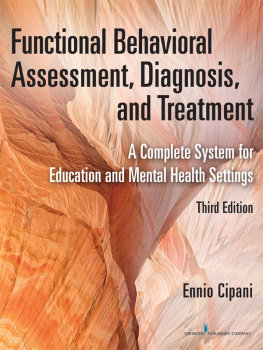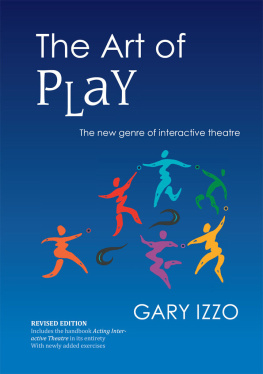Acknowledgements
The authors would like to thank the following people for their help in the writing of this book: Nazan Djemal, Sachvinder Kaur Mahal, Ela Wesolowska and Ziggy Wesolowski.
First published in 2009 by Learning Matters Ltd
All rights reserved. No part of this publication may be reproduced, stored in a retrieval system, or transmitted in any form by any means, electronic, mechanical, photocopying, recording, or otherwise, without prior permission in writing from Learning Matters.
2009 Richard Malthouse, Peter Kennard and Jodi Roffey-Barentsen
British Library Cataloguing in Publication Data
A CIP record for this book is available from the British Library.
All characters, organisations and places mentioned in this publication are fictitious and any resemblance to real persons, living or dead, organisations or places, is purely coincidental.
ISBN: 978 1 84445 249 1
The rights of Richard Malthouse, Peter Kennard and Jodi Roffey-Barentsen to be identified as the Authors of this Work have been asserted by them in accordance with the Copyright, Designs and Patents Act 1988.
Cover design by Topics The Creative Partnership
Text design by Code 5 Design Associates Ltd.
Project Management by Diana Chambers
Typeset by Kelly Gray
Printed and bound in Great Britain by TJ International Ltd., Padstow, Cornwall
Learning Matters Ltd
33 Southernhay East
Exeter EX1 1NX
Tel: 01392 215560
info@learningmatters.co.uk
www.learningmatters.co.uk
Introduction to the
Interactive Exercises
CHAPTER OBJECTIVES
By the end of this chapter you will be able to:
identify the seven core competencies;
explain the purpose of an interactive exercise;
describe what is involved in the preparation stage;
describe what is involved in the activity stage;
state the Magnificent Seven;
distinguish between open and closed questions;
state the component parts of TED PIE;
identify the resources available to you;
explain equal opportunity and diversity;
list the six strands of diversity;
recognise respect for diversity;
identify when to challenge inappropriate behaviour;
recognise the principles of reflective practice;
engage in action planning;
explain the SMART mnemonic;
recognise how the interactive exercises are scored;
list 20 tips for your interactive exercise.
Introduction
Interactive exercises, also referred to as role plays, are an important part of the Police and PCSO recruitment process and appear to be the thing candidates worry about the most. This is because most people never get to do one and, more importantly, they dont actually know what to do; it is the fear of the unknown. This book takes away that fear. It concentrates on just the interactive exercises. It describes in detail how to prepare yourself mentally and physically; outlines the process and set tasks; offers interactive exercises for you to practise; and assists you in analysing the content.
What is an interactive exercise or role play exactly? It is a contrived situation in which people interact with each other and act out the role of specified characters. Frequently it is used to enable a person to understand anothers point of view or to behave in a way that is perhaps counter to their own values. However, within the context of the assessment centre it is used as a test to see how you are able to interact in given situations. The interactive exercise tests your ability to:
communicate;
ask open and closed questions appropriately;
take control of situations;
make decisions;
take responsibility;
be fair;
be impartial;
challenge inappropriate behaviour.
Ideally you will use this book with a friend or colleague, with this person taking on the role of the actor. However, it is still of value to work through the contents on your own. It is recognised that the assessors at the assessment centre are fully trained and this cannot be emulated by the person volunteering to take the part of the role actor for you. However, this is a necessary compromise and practising the experience can be very beneficial. Human nature may play a part in your wish to appear to do well in front of your friends, peers or members of your family. You may be tempted to take a peek at the suggested questions, so as not to lose face or appear silly. But you will gain far more from this book if you resist the temptation.
Remember, the process of learning means that you will make lots of mistakes. Learn from them and look at mistakes as learning opportunities.
The seven core competencies
You will be assessed against competencies that are relevant to the role of a police officer. What is a competency? A competency is a statement of how something should be done or performed, for example, Makes sure that customers are satisfied with the service they receive. It is observable and measurable and can be achieved by you by simply asking, Are you happy with what I am proposing or is there anything else I can assist you with?
When you are assessed, consideration will be given to what you do and how you do it. Assessors will watch you and give marks as you complete the exercises. They will consider your performance in relation to the seven core competencies. These are listed below along with a brief explanation of each (Cox, 2007).
1. Respect for race and diversity | Considers and shows respect for the opinions, circumstances and feelings of colleagues and members of the public, no matter what their race, religion, position, background, circumstances, status or appearance. |
2. Team working | Develops strong working relationships inside and outside the team to achieve common goals. Breaks down barriers between groups and involves others in discussions and decisions. |
3. Community and customer focus | Focuses on the customer and provides high-quality service that is tailored to meet their individual needs. |
Understands the communities that are served and shows an active commitment to policing that reflects their needs and concerns. |
4. Effective communication | Communicates ideas and information effectively, both verbally and in writing. |
Uses language and a style of communication that is appropriate to the situation and people being addressed. |


